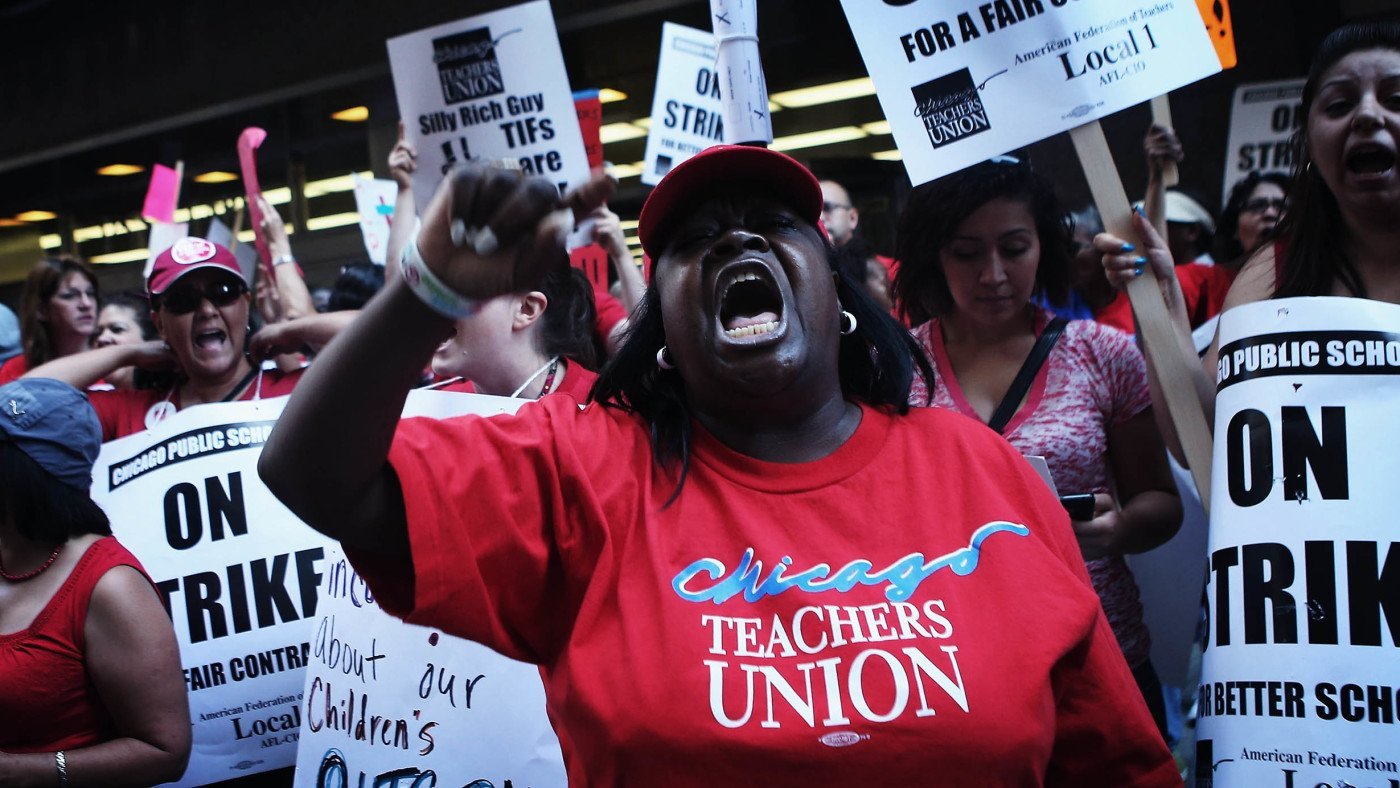The Chicago Teachers Union conducted a walk-out across the city on April 1st. The strike shut down classrooms to protest what the union claims is inadequate state support for Chicago Public Schools (CPS). Besides Chicago’s students, the walk-out leaves behind the next-most-important thing—a sense of fiscal reality. CPS’ real problem isn’t revenue, it’s expenses. Expenses the Chicago Teachers Union helped drive.
If anything, Chicago Public Schools’ state support has skyrocketed. CPS’ total revenues from federal, state, and local taxpayers have more than doubled since 1997. They now stand at $5.3 billion. The trend holds up across each funding source. Since 1998, state taxpayers have nearly doubled their contributions per-pupil, from $2,733 to $5,148 per student. City residents contribute $5,414 per-pupil as well, up from $3,733 in 1998. That increase outpaced inflation by over 50 percent. Finally, federal funding more than doubled since 1998, from $415 to $876 million. Chicago, Illinois, and US taxpayers have done more than their due diligence in providing CPS adequate revenue. That is simply not up for debate.
Unfortunately for Chicago’s children, they’re growing up in one of the most flagrantly mismanaged school districts in the country. Thanks to a ten-year history of using Chicago Public Schools’ pension system as a slush fund (called a “pension holiday”) to pay for school operations and salary raises over ten years, CPS officials managed to divert $1.5 billion from a formerly fully-funded retirement plan. The combination of raiding the fund and skipping contributions left a $3.1 billion hole by 2006. In 2010, CPS let itself raid the pension hen-house again, giving itself another “holiday.” $1.3 billion promptly took a holiday of its own from teacher retirements, and the shortfall is now $9.5 billion, according to the Illinois Policy Institute. The situation is so bad that last year, Moody’s Investor Services and Fitch ratings downgraded CPS’ debt to junk status.
Instead of standing up to CPS’ policies that created this emergency, the CTU was an accessory to the damage. The union gave CPS carte-blanche to mortgage its members’ future, agreeing to both pension holidays. The CTU signed on, knowing full well that the pension raiding was endangering their employees and their students, all thanks to misplaced priorities. The average annual pay raises of 4.2 percent a year between 1998 and 2012 likely had something to do with the decision.
Instead of walking out on kids who need an education, the Chicago Teachers Union should start looking at how its spending the money it already has. That means a sober conversation about pension reform. CPS should transition from its defined benefit plan to a more sustainable defined contribution plan. Defined benefit systems guarantee payouts to retired employees from company funds. This only works if the firm has enough money to make the payments. That’s difficult when you have more retirees than ever before (just ask the Social Security Administration). It’s even more difficult when the firm doesn’t play by the rules and spends the pension money elsewhere. Chicago has both problems. In the private sector, defined contribution pensions, like 401(k) plans, are the norm. Employees contribute to their own retirement plans little-by-little throughout their careers, a more sustainable alternative that doesn’t depend on future workers to support. The CTU could be a force for good by calling for these changes. But instead, they’re misplacing the blame and hurting kids in the process.
Before they deny students another minute of schooling or ask taxpayers for another dime of funding, the Chicago Teachers Union needs to wake up and stop being part of the problem they are protesting.


